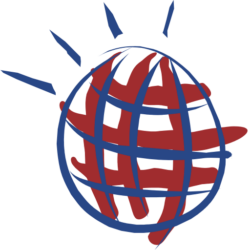The IEEE EDOC 2020 The Doctoral Consortium (DC) is a forum of exchange organized to encourage PhD students to present their early work and to exchange with other researchers in their fields. Senior researchers will provide feedback and advice on the work and advice on managing research projects. The Doctoral Consortium is also a place to establish a social network with peers in the field of the conference.
The technical scope of the Doctoral Consortium is that of EDOC 2020, as described by the list of the topics in the EDOC 2020 call for papers. We encourage submissions from PhD students at an early stage of their research project, i.e., typically in their first or second year. A submission to the DC should clearly describe motivation, goal, expected results, and the research approach taken. Participants will be expected to actively discuss and argue about their work by reading each other’s work prior to the DC, giving a presentation at the Doctoral Consortium, debating together, and listening to senior researchers’ feedback.
Doctoral Consortium Submissions
To participate at the Doctoral Consortium, students should prepare a submission package consisting of two parts, a paper and a letter of recommendation.
1) The paper (typically 3 to 6 pages) should cover the following aspects:
- The context and goal of the research;
- The scientific problem addressed in the PhD project and its relevance to the conference field. Any observation or case study that justifies or substantiates the problem should be given. The problem can be further specified with research questions and hypotheses;
- Earlier works that have addressed a similar problem. Explanations why the problem is not solved (i.e. open issues and controversies) should be underlined;
- The scientific method proposed to address the problem at hand ;
- The expected results, and any result that has already been obtained so far;
- A plan for the evaluation of results.
All submissions must be made in PDF format and comply with the IEEE Computer Society Conference Proceedings Format Guidelines.
Doctoral Papers should be submitted electronically in PDF format via the EDOC Conference Management system hosted on EasyChair to track EDOC 2020 Doctoral Consortium.
2) The recommendation letter should:
- be submitted directly by the advisors to Saïd Assar <said.assar@imt-bs.eu> and Bernd Neumayr <bernd.neumayr@jku.at>.
- include the title of the paper, the name of the candidate, the status of the dissertation research, and an expected date for the PhD defense.
Selection process
Desk rejects of papers that:
- do not comply with the formatting guidelines,
- are out of scope of the conference themes,
- have been (or are) submitted or published elsewhere,
- include plagiarism.
The Doctoral Consortium Committee will review submissions using the following criteria:
- Technical quality, clarity, soundness, precision, and adequacy of the problem statement, related work, self-contained and feasible method description, realistic expected results, and sensible evaluation plan.
- Overall quality.
Proceedings
Accepted doctoral papers will be published in the workshop proceedings of the IEEE EDOC conference (EDOCW), which will be submitted to the IEEE Xplore® digital library.
The PhD student, author of the accepted DC paper, must register for the conference and be in attendance to present the paper during the Doctoral Consortium.
Important Dates
Please find the important dates on this page.
Doctoral Consortium Advisory Committee
- Colin Atkinson, University of Mannheim, Germany
- Georg Grossmann, University of South Australia, Australia
- Marten van Sinderen, University of Twente, The Netherlands
Doctoral Consortium Chairs
- Said Assar, Institut Mines Telecom Business School, France, said.assar@imt-bs.eu
- Bernd Neumayr, Johannes Kepler University Linz, Austria, bernd.neumayr@jku.at
Doctoral Consortium Program Committee
- Lamiae Benhayoun, Institut Mines-Telecom Business School, France
- Markus Borg, Research Institutes of Sweden (RISE), Sweden
- Dominik Bork, Vienna University of Technology, Austria
- Manfred Jeusfeld, University of Skövde, Sweden
- Manuele Kirsch-Pinheiro, Université Paris 1 Panthéon Sorbonne, France
- Andreas L. Opdahl, University of Bergen, Norway
- Camille Salinesi, Université Paris 1 Panthéon Sorbonne, France
- Dalila Tamzalit, University of Nantes, France
- Thierno Tounkara, Institut Mines-Télécom Business School, France
